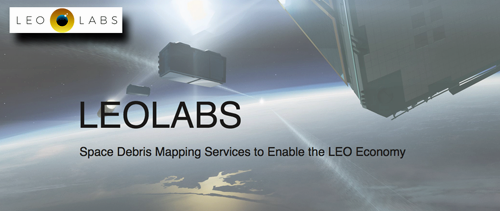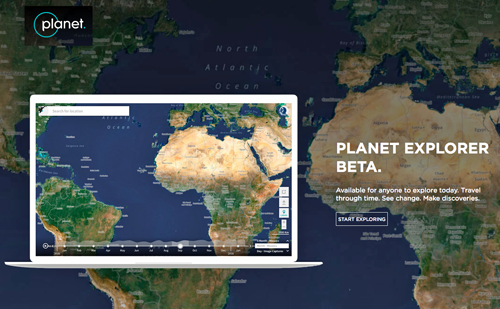
LeoLabs, Inc. is teaming with Planet to help protect satellites and keep space navigable for future generations of entrepreneurs.
In a paper to be published at The Advanced Maui Optical and Space Surveillance Technologies (AMOS) conference, LeoLabs and Planet will demonstrate a flight system that uses commercial data sources to enhance collision risk assessment and enable safer debris avoidance maneuvers for satellites in LEO. With the pace of innovation increasing and the number of satellites set to increase dramatically over the next few years, this integration is especially timely.

Planet operates the world’s largest fleet of Earth-imaging satellites, collecting a massive amount of information about our changing planet. The company is also an industry leader in establishing best practices designed to keep space navigable for future generations of space entrepreneurs.
Today, collisions in space are prevented through the use of conjunction data messages (CDMs) issued by the Joint Space Operations Center (JSpOC). LeoLabs has enhanced the safety of Planet’s satellites by providing additional information on the debris identified in the CDMs.
Satellite operations teams continually monitor the CDMs they receive from JSpOC and typically maneuver their satellites in the days before a possible collision. For many satellites, a maneuver entails firing thrusters to speed up or slow down the satellite. Planet’s Dove satellites do not have thrusters, but instead spin around to change the orientation of their solar panels and atmospheric drag does the rest, a technique Planet calls differential drag. The accurate tracking data provided by LeoLabs allows these small maneuvers to be performed safely around debris objects.

James Mason, Planet's Vice President of Mission Operations.
James Mason, VP of Mission Operations at Planet, noted that LEO is a powerful platform for delivering services such as Planet’s, enabling the company to monitor environmental change and economic activity on a global scale. It’s critical to the company, and to the firm's industrial counterparts that LEO remain safely usable. That’s why Planet is excited to share with the entire industry the commercial best practices we’ve developed with LeoLabs to keep satellites safe from collisions.

Mike Nicolls, LeoLabs’ CTO and Co-founder.
Mike Nicolls, LeoLabs’ CTO and Co-founder added that when a piece of debris is identified as concerning by the JSpOC, LeoLabs schedules extra radar observations of that piece of debris so that its trajectory and the probability of it colliding with a satellite are more quickly understood. This detailed information enhances a satellite operator’s understanding of the environment around their satellites, enabling them to rule out non-threatening debris and to maneuver their satellites to mitigate true risks.Automation is critical for making this service practical for the next-generation of satellite constellations, which will have hundreds to thousands of satellites. Satellite operators interact with LeoLabs' services through the company's RESTful API, which enables a fully automated safety systems that can scale to extremely large constellations.

